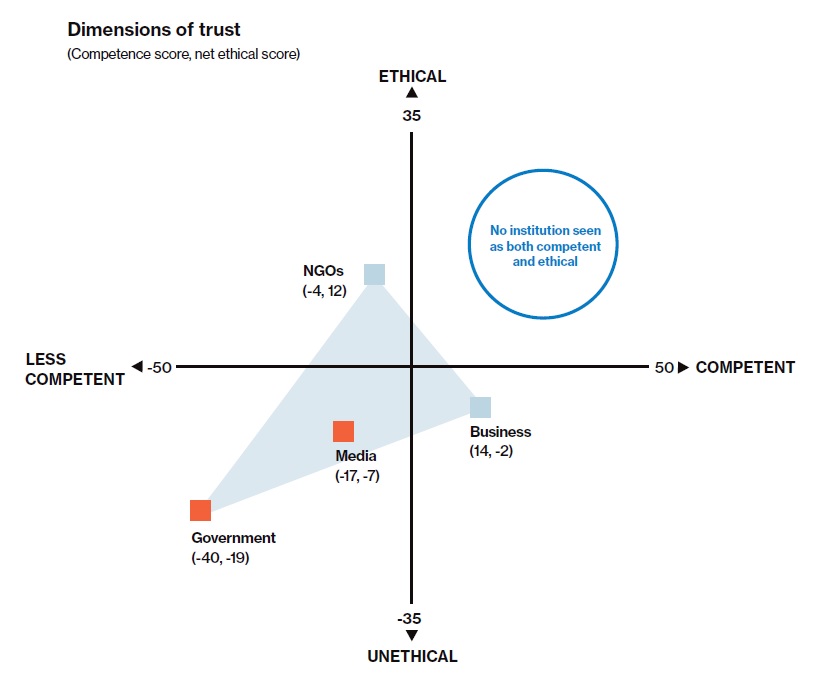Tags: Pay, Training, Diversity
This is the 20th annual trust and credibility survey, conducted by Edelman. It is an online survey that covers over 34,000 respondents in 28 markets worldwide. This year, the Edelman Trust Barometer focuses on what has been defined as the trust paradox.
This year, the Edelman Trust Barometer focuses on what has been defined as the trust paradox. This paradox is caused by the contrast between an economic situation that appears to be positive for many (over the past two decades, more than a billion people around the world have lifted themselves out of poverty for example) and the low levels of trust that people have in institutions such as governments, media and NGOs. This mismatch between economic growth and trust is especially present in the developed world, where, according to Edelman, major corporate scandals have tarnished the reputation of business and fuelled the perception that people are not getting their fair share of growth and prosperity. This sentiment is confirmed by the 56% of respondents saying that capitalism as it exists today does more harm than good in the world.
Edelman identifies two components of trust: compentence and ethical behaviour. Their research indicates that competence is the less important of these two determinants of overall trust, accounting for 24% of measurable trust capital. Meanwhile, 76% of trust capital hinges on ethics-related dimensions. As the graph below indicates, today no institution is seen as both competent and ethical, explaining stagnating trust in the face of strong economic performance.
The imbalances among the different institutions is striking and, in particular, trust in government is rather low on both dimensions. However, Edelman points out that government is trusted twice as much as business to act on two crucial issues of the next decade: protecting the environment and closing the income inequality gap.
The picture these results paint suggests the need for a collaborative approach, whereby all institution work closely together to reduce the imbalances and tackle collaboratively these complex challenges. However, only about one-third of people believe that business partners with NGOs or government effectively.
In addition to collaborations and partnerships with government, Edelman identifies more trust-building priorities for business: pay fair wages and focus on retraining of the workforce. Results show that people would like to see buinsess take action on those issues: 92% of employees surveyed say that they expect their employer's CEO to speak up on one or more issues ranging from income inequality to diversity and training for jobs for the future. Further, 73% of employees expect a perspective employer to offer the opportunity to shape the future of society in a positive way.
Edelman concludes by highlighting that business has the opportunity to take the lead on addressing the trust paradox because of its greater flexibility. Paying decent wages and provide retraining for workers whose jobs are threatened by automation is seen as the duty of business by an overwhelming majority of respondents (83% and 79% respectively). However, less than a third of people trust business to do so. It is important that the year ahead will be seen as an opportunity for business to take practical action to be perceived as deservig its social licence to operate.

